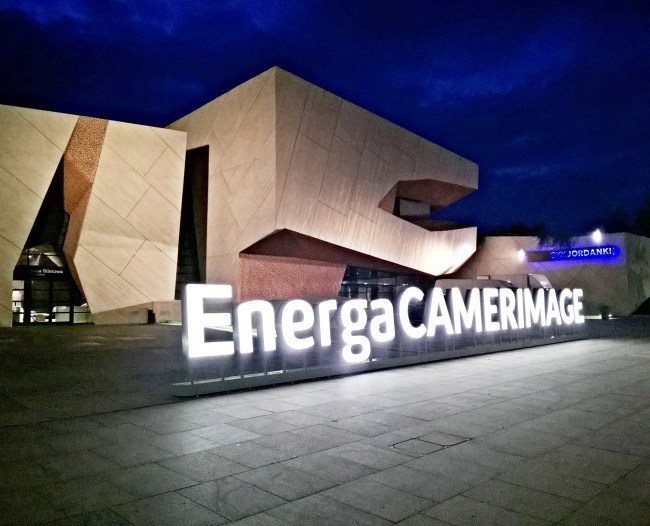Camerimage is a yearly film festival set in Toruń, Poland, that is dedicated to the art of cinematography. The week-long event is akin to homecoming week for those in the profession, as the greatest cinematographers from around the world gather to celebrate each other’s work, discuss the craft, and party late into the evening. This year’s edition, the festival’s 32nd, is getting off to a far less harmonious start. Ahead of Opening Night on November 16, the festival has found itself embroiled in a controversy stemming from a column written by its founder, director, and CEO Marek Żydowicz in Cinematography World magazine that many are calling sexist and reflecting a blindspot in the festival’s overall programming.
In response to Women in Cinematography’s August change.org petition calling on the festival to better represent the contribution of women cinematographers, Żydowicz’s Cinematography World column went well beyond defending the festival’s track-record and equated the call for diversity with the festival lowering its high standards.
“The film industry is undergoing rapid changes, affecting the cinematic image, its content, and aesthetics,” wrote Żydowicz. “One of the most significant changes is the growing recognition of female cinematographers and directors. This evolution is crucial as it rectifies the obvious injustice present in societal development. However, it also raises a question: Can the pursuit of change exclude what is good? Can we sacrifice works and artists with outstanding artistic achievements solely to make room for mediocre film production?”
And that was just the opening paragraph. Żydowicz went on to state he would not submit to current political and ideological trends, refusing to follow in the footstep of the Cannes, Berlin, and Venice film festivals that have been “criticized for their selections due to succumbing to or promoting such trends.”
The response to the article was swift, led by the British Society of Cinematographers, as the 75-year old organization didn’t mince words in calling out what it viewed as Żydowicz’s outdated view of male superiority in the field and for conflating female cinematography with mediocrity.
“The BSC wishes to express its disapproval of your recent article in Cinematography World,” reads the association’s Open Letter to Żydowicz. “We are disheartened and angered by your profoundly misogynistic comments and aggressive tone, which we view as symptomatic of a deep-rooted prejudice.”
The BCS letter was backed by its American conterparts, the American Society of Cinematographers (ASC), and echoed in similar rebukes by the Association of Brazilian Cinematographers (ABC), Society of Camera Operators, Canadian Society of Cinematographers (CSC), Women Cinematographers Network (from Germany, Austria & Switzerland), and a number of the biggest names, both men and women, behind the camera.
“One cannot call for meritocracy while simultaneously defending misogyny,” wrote Oscar winning DoP Erik Messerschmidt on Instagram. “Citing examples of increased diversity does not excuse the suggestion that nurturing a more inclusive and representative environment will bring ‘mediocrity’ to the festival program. Comments like these are indicative of the problem.”
Cinematographer/director Reed Morano, who has served as jurist at Camerimage, stated that most of the mediocre works she has sat through at the festival were shot by men. Morano, taking to Instagram, wrote a post that has been shared widely throughout the cinematography community, with a number of the biggest women cinematographers working today thanking Morano for capturing how they personally were feeling about the controversy.
“Looking back I would say the majority of the ‘mediocrity’ they selected was shockingly actually not shot by a woman!,” wrote Morano. “I know this because I still remember almost every film shot by women because they were rare to see and typically stood out as exemplary work. And I also cannot forget the ‘mediocre’ work that I had to watch, with my jaw on the floor. It saddens me that the message from my friends at Camerimage Festival — simply by their qualifying art by gender and female work in the same sentence as mediocrity — is that it appears they have an old fashioned way of thinking that even they cannot admit to. And that is this: A man deserves to be in competition as a cinematographer more than a woman.”
In response to the backlash, Żydowicz would appear to not be backing down from initial comments. In a letter released on the Camerimage website, the festival director addressed BSC members directly.
“I truly believe that the accusations made against me in the statement published on BSC website are entirely misplaced and quite offensive,” wrote Żydowicz. “If these accusations were indeed true, this festival would simply no longer exist. Respect for others has always been my priority, and it remains one for our festival as well.”
Żydowicz accuses the BSC of misinterpreting his comments, which he states were solely addressing selection criteria at the festival, and indicated he has been in talks with Women in Cinematography about collaborating to help the festival grow.
To judge for yourself: You can read Women in Cinematography’s August change.org petition here, Żydowicz’s original Top of View column in Cinematography World here, BSC’s letter here, and Żydowicz’s response to the BSC here.
The spirit of the original change.org petition acknowledged the importance of Camerimage as a platform and its role in showcasing remarkable work by women cinematographers over the years, and the spirit of the petition was a very public nudging of the festival to strive to do better, adding, “With Cate Blanchett named as Jury President this year, this is a great moment to amplify her values and activism and finally commit to screening a programme of films that truly reflects the wonderful work of female cinematographers across the globe alongside their male counterparts.”
This mention of Blanchett was from August, well before the controversy, but it does highlight the number of high-profile names who will be in town for the festival, which has become ground zero in the Best Cinematography race — nowhere else can awards hopefuls find such a concentrated audience of ASC guild and Academy Cinematography branch voters gathered to watch films. The majority of top cinematographers with 2024 films will be in attendence — with Greig Fraser (“Dune 2”), Jarin Blaschke (“Nosferatu”), and Alice Brooks (“Wicked”) also serving as jurists in other categories — and it is common for top directors like Steve McQueen, who will be receiving an award at Camerimage, to be in attendence to support his collaborators like “Blitz” cinematographer Yorick Le Saux.
This year’s festival had already embraced controversy by deciding to premiere “Rust,” the Western during which cinematographer Halyna Hutchins was killed by a live round fired from a prop gun by actor/producer Alec Baldwin. The festival and the film’s director, Joel Souza, look at the event as a way to honor the work and life of Hutchins, but others question if showing the film that killed her is the appropriate way to do so.
The Camerimage Film Festival takes place in Toruń, November 16-23, 2024


